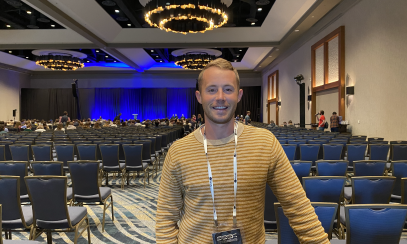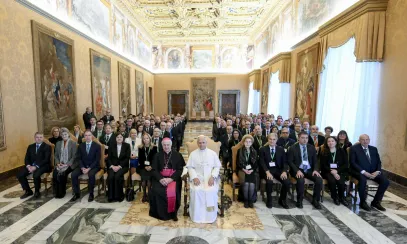
Communications Office will Fast from Social Media each Friday During Lent
In our Holy Father’s message for Lent this year, he singled out digital media as a possible source of sin and addiction. He said Lent is the time to reflect upon how we use digital media, if we haven’t already.
“Lent is a propitious time to resist these temptations and to cultivate instead a more integral form of human communication made up of authentic encounters — face-to-face and in person,” Pope Francis said in his message for Lent, which begins March 2.
He said addiction to digital media, “impoverishes human relationships.” He said Lent is an opportune time to cultivate healthy communication and face-to-face encounters.
In solidarity with the pope’s message, the Diocese of St. Petersburg Office of Communications will fast from posting on social media each Friday during Lent. The Office of Communications social media accounts will post a message each Thursday night letting fans and followers know that the digital fast will take place the following day.
“Between Facebook, Twitter, and Instagram, we reach about 20,000 people each week. We are hoping that our weekly message about the digital fast will encourage our audience to consider their own social media usage,” said Teresa Peterson, Executive Director of Communications.
“I will also try to personally refrain from digital on Fridays during Lent to focus more on authentic encounters and my relationship with Christ,” Teresa added.
Released by the Vatican Feb. 24, the pope’s Lenten message was titled, “Let us not grow tired of doing good, for in due time we shall reap our harvest if we do not give up. So then, while we have the opportunity, let us do good to all,” which is from St. Paul’s Letter to the Galatians.
Pope Francis also warned about the harmful effects of overusing digital media in Fratelli Tutti, a document he wrote on fraternity and friendship.
“Digital media can also expose people to the risk of addiction, isolation and a gradual loss of contact with concrete reality, blocking the development of authentic interpersonal relationships. They lack the physical gestures, facial expressions, moments of silence, body language and even the smells, the trembling of hands, the blushes and perspiration that speak to us and are a part of human communication” (Fratelli Tutti #43).



